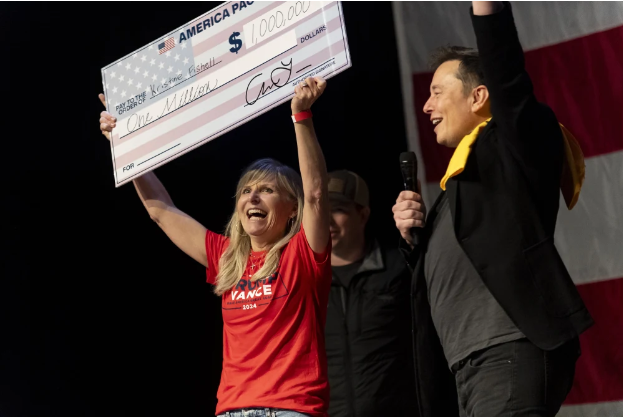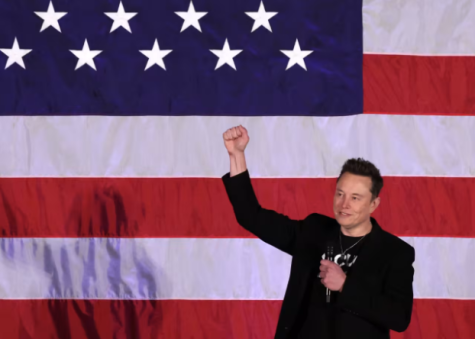
Audrey Folia | Head Editor
October 24, 2024
Currently, Elon Musk is running a giveaway for American citizens, offering them a possible $1 million if they sign his PAC petition affirming the 1st and 2nd Amendments. But the catch that has many questioning the legality behind his operation: you must be a registered voter living in a swing state.
Often called swing states or battlegrounds because of their critical sway in an election, a swing state could be won by either political candidate and is therefore considered vital in the race to get to 270 electoral votes. Elon Musk’s petition requires that an individual must live in one of the seven battleground states, which include Arizona, Georgia, Michigan, Nevada, North Carolina, Pennsylvania, and Wisconsin.
Though most people have their eyes set on the $1 million prize that he gives out daily, Musk is also offering $47 as a referral bonus for recruiting another swing state voter. Despite being a seemingly random number, it holds significance in its tie to the next president being the 47th one.
Junior Owen Naylor proposed that the whole ordeal “seems like bribery.” He’s not the only one who shares the sentiment, with many describing the lottery as a legal gray zone. While sources claim that the PAC “is confident in the legality of this initiative”(CBS News), others are skeptical about his endeavor.

Although it is illegal according to federal law to pay someone to register to vote, Musk dodges this as he is technically paying people to sign a petition, not register. Still, Senator Josh Shapiro described Musk’s actions as “deeply concerning,” and called for law enforcement to examine its legality further. Some agree with the senator, arguing that the condition that one must be a registered voter nears a legal boundary.
The debate over whether or not it violates federal law prohibiting paying for votes is what makes it a legal gray zone. Some claim that, as previously stated, he isn’t paying them to vote, simply to sign the petition, so therefore it is legal. They also have confidence in the fact that Musk must have had a legal team check the laws beforehand as he has too much money and is too smart to risk losing it all. Others are adamant that it draws close enough to paying someone to make it illegal, especially with the clear motivation being to get people to vote for Donald Trump.
Junior Lila Davey argues that even if it is legal, “there are better things he could be doing with his money, like donating it.” As Davey claims, Musk’s situation calls into play the larger concept of the wealthy using their influence in a political way more than ever before. Just as Taylor Swift sparked outrage over endorsing Kamala Harris, Musk’s petition makes Americans question what role influential people should play in an election.

Leave a Reply